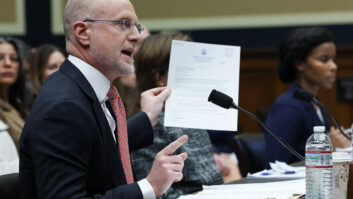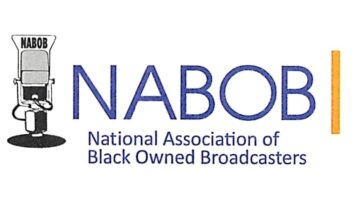The FCC has updated its political programming and record-keeping rules for broadcast licensees.
A Report and Order adopted this week revises the rules with the goal, the commission said, of aligning them with modern campaign practices and increasing transparency.
The rules revise the list of ways that define if someone is a “legally qualified candidate” to add the creation of a campaign website and the use of social media to promote or further a campaign for public office.
The revision will help determine whether an individual running as a write-in has made “substantial showing” of his or her bona fide candidacy.
David Oxenford, a communications attorney with Wilkinson Barker Knauer LLP, wrote about it on his Broadcast Law Blog. “Legally qualified candidates, even write-ins who have made this substantial showing, are entitled to all the protections of the commission’s political rules, including equal opportunities, lowest unit rates and, for candidates for federal office, reasonable access to buy advertising time on commercial broadcast stations.”
A person just saying that they are a write-in candidate is not enough to qualify for protections under the FCC rules, he continued; a substantial showing is also required.
[Previously: Rosenworcel Wants to Update Political Programming Rules]
“The FCC is simply recognizing that online media is an important factor in determining if a candidate is a serious candidate who should receive the benefit of FCC protections, “ he wrote.
The commission does specify in the order that a legally qualified candidate needs his or her campaign to be more than totally virtual. “Some real-world activity is still necessary for a write-in candidate to be considered legally qualified,” the FCC wrote.
The National Association of Broadcasters, in comments filed during the political programming and record-keeping rulemaking proceeding in 2021, expressed support for these changes, according to the FCC.
The revisions, which Oxenford deemed as minor, includes a second part that brings the FCC in line with existing federal statutory requirements by requiring stations to upload to their political file any information about advertising on federal issues.
This record-keeping requirement makes the FCC’s political file rules consistent with the Bipartisan Campaign Reform Act of 2002, according to the commission. This extends a station’s political file requirements to any request for the purchase of advertising time that “communicates a message relating to any political matter of national importance.”
The requirement was adopted some 20 years ago but never formally carried over in the FCC’s rules, Oxenford explained in his blog; yet the FCC has been enforcing the record-keeping requirement, even issuing admonitions to some TV stations for perceived violations of the political file rules.
“So formally adding these obligations to the rules just reiterates what is already required of broadcasters dealing with federal issue ads,” according to Oxenford’s blog.
The FCC first adopted rules requiring broadcast stations to maintain public inspection files documenting requests for political advertising time more than 80 years ago. It says the record-keeping requirement is integral to ensuring compliance with the statutory protections for political programming.
Comments made during the FCC’s political programming and record-keeping rulemaking proceeding (MB 21-293) can be viewed here.







